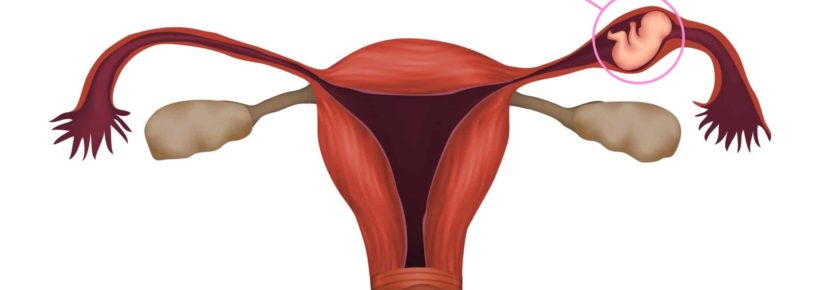Most people believe access to abortion should be limited. But how limited? Are abortion exceptions permissible to save the mother, or after rape or incest, or in cases of severe fetal deformities?
The “Health of the Mother” Exception
Because of advances in medicine, there are currently no maternal medical conditions for which abortion is the only cure. Even leading pro-abortionists have recognized this fact for decades.
Dr. Alan Guttmacher, former President of the Planned Parenthood Federation of America, did more to promote and spread abortion-on-demand throughout the world than any other individual. Yet as long ago as 1967, he commented, “Today it is possible for almost any patient to be brought through pregnancy alive, unless she suffers from a fatal disease such as cancer or leukemia, and if so, abortion would be unlikely to prolong, much less save the life.”1
Former Surgeon General of the United States Dr. C. Everett Koop said that “the life-of-the-mother argument surfaces in every debate concerning abortion. The fact of the matter is that abortion as a necessity to save the life of the mother is so rare as to be nonexistent.”2
When a pregnant woman suffers from a life-threatening condition such as ectopic pregnancy or uterine cancer, she may receive treatment of the pathological organ without the direct and intentional murder of her child. The baby may not survive the treatment, but in these unfortunate cases, the baby’s death is not the intended goal of the procedure; it is instead a tragic side effect of the mother’s treatment. Whereas legitimate medical procedures such as salpingectomies and hysterectomies actually treat the mother’s illness, abortion serves only to kill the child. Abortion itself does not treat any disease.
Rape or Incest
We might examine two newborn babies lying side by side—one conceived within a loving marriage and one conceived as the result of a brutal rape—and then ask which should be considered more human and therefore worthy of life.
Rape is appalling, but abortion simply inflicts another level of violence on the innocent child conceived by the act and further psychologically harms the woman who was the victim of the rape or incest. Typically, a woman who is a victim of rape or incest is pressured into aborting, when instead she needs the support and encouragement of those around her.3
Additionally, abortion is the ideal cover-up for incest: there have been many instances of abusers taking underage victims to abortion clinics, almost all of whom have a “no questions asked” policy, leaving the abuser free to commit his crimes again and again. Planned Parenthood’s willingness to ignore law and justice in order to forward abortion by showing ostensibly underage and pregnant girls how to circumvent the law is documented at www.liveaction.org.
More violence is not the proper response to rape or incest.
Severe Birth Defects
Even if a baby will die shortly after she is born, what is a more civilized response — to hold and love her in the short time she has on this earth, or cut her apart with a vacuum curettage machine? Eugenics cannot justify killing imperfect people: the abortion of preborn children who may be disabled is nothing more than eugenics, discrimination of the basest kind. Those who abort a preborn child with genetic abnormalities are saying by their actions that a baby with disabilities has less of a right to live than a baby without such disabilities.
A truly humane society would not kill its weakest members, but would rather love them and support them, even if their disabilities are incompatible with life. It is easy to love the perfect; but how much we are willing to give to the imperfect is the true measure of love.
The Rarity of the Hard Cases
Based on statistics provided by medical journals and government surveys, we find that the hard cases are much rarer than most people believe.
In the United States, six states surveyed 2.4 million aborting women for the reasons they obtained abortions from 1996-2020. They found that abortions done with the stated justification of saving the life or physical or mental health of the mother accounted for only about 1.14% of all abortions; abortions for rape and incest accounted for 0.39% of all abortions; and about 0.69% abortions were done for fetal birth defects (eugenics).
Overall, the hard cases combined account for about 3.5% of all abortions done in the United States today. This means that about 96.5% of all abortions are performed for social or economic reasons or to please people close to her such as parents, husband, or boyfriend. These numbers represent the sum of surveys of 2.4 million aborting women done in Florida, Louisiana, Minnesota, Nebraska, South Dakota, and Utah.4
Final Thoughts
An old legal saying goes “hard cases make bad law”: a good lawyer can justify the overturning of any principle when circumstances are difficult enough. Pro-abortion groups have used the “hard cases” to negate the American tradition of valuing individual life, and through abortion exceptions, have succeeded in imposing abortion on demand on the United States through the courts.
Though only a tiny proportion of abortions in America and most other countries are due to hard cases—to save the life or health of the mother, rape, incest, and serious fetal deformities—pro-abortion groups portray these reasons as the norm. In fact, the vast majority of abortions are sought for social and economic reasons.
This article was originally published in July 2018 and was most recently updated in January 2024.
+ Endnotes
[1] Alan Guttmacher, “Abortion Yesterday, Today, and Tomorrow,” The Case for Legalized Abortion Now (Berkeley: Diablo Books, 1967), 9.
[2] C. Everett Koop, The Right to Live, the Right to Die (Toronto: Life Cycle Books, 1981), 61.
[3] CHOICES4LIFE provides many resources for women who were raped, as well for those who were conceived in rape.
[4] Tabulation of reports on “Induced Termination of Pregnancy” from Florida [1998-2020], Louisiana [1996-2018], Minnesota [1999-2019], Nebraska [2001-2019], South Dakota [1999-2019], and Utah [1996-2018].
Related Content
HLI staff writers bring you stories from the mission field and the latest information on life and family issues. All HLI articles are true to Catholic teaching.









thanks for talking about this.